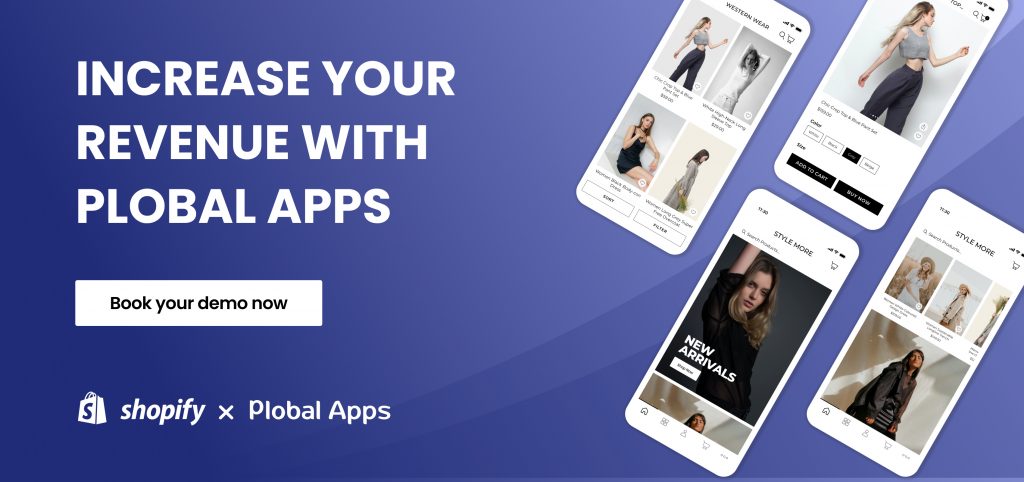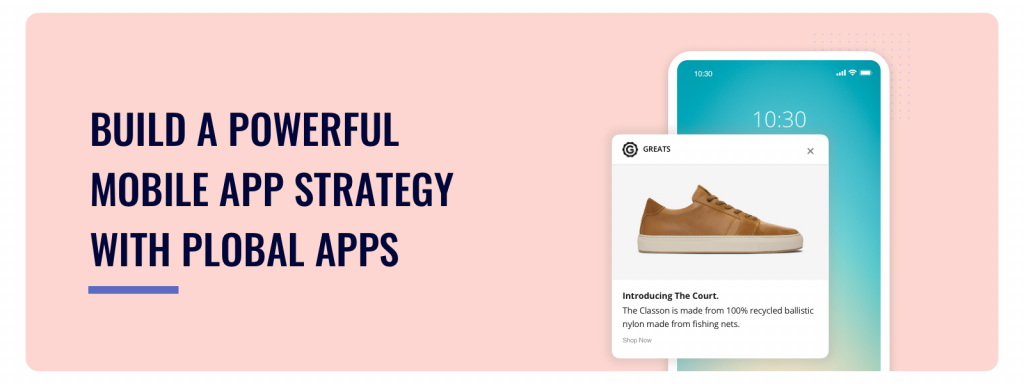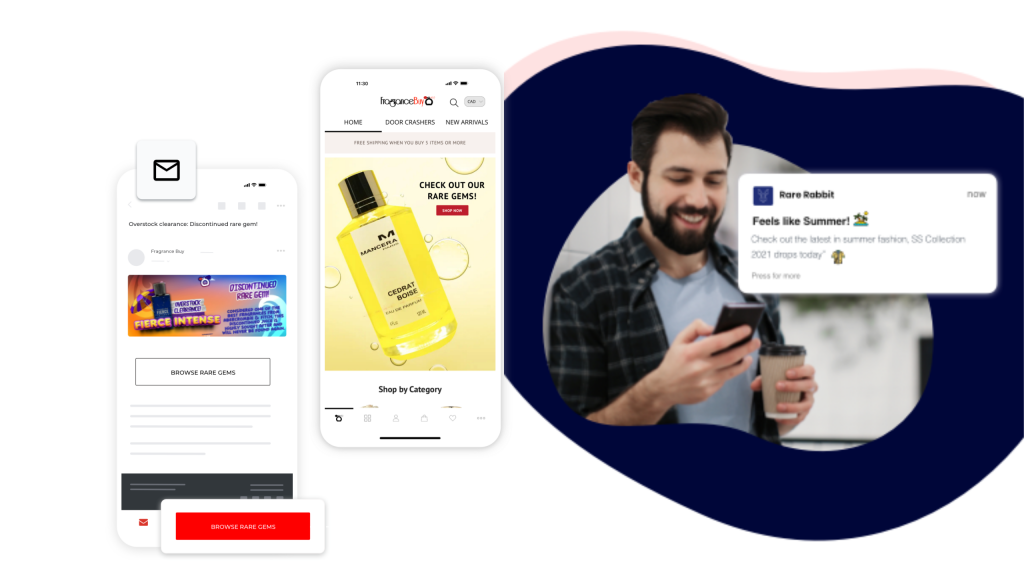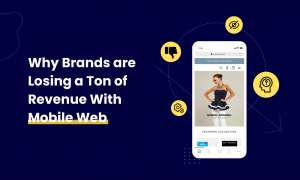There are pros and cons to mobile web and mobile apps when building a community. Which one is better for your business depends on your specific goals. A mobile app is a way to go when you’re looking to create a strong brand identity and connect with customers on a deeper level. However, mobile web is the better option when you’re more interested in driving traffic to your website and increasing sales.
Why you’ve never heard of brand building from an eCommerce app
Since the introduction of Facebook and the takeover of web2, few brands have even tried to build brand loyalty and community through their channels. “Why try to bring them to me when I can just go to them?” Well, because it was costly. And it’s only getting more expensive every day.
You’ve probably noticed there aren’t a lot of Fortune 500 brands that have successfully accelerated their brands on mobile apps. Except, say, Nike in 2020. That’s because, until then, it was nearly impossible for emerging brands to afford a mobile app. Until mobile commerce app builders like Plobal Apps came onto the scene with push notifications, they gave brands outside the Fortune 100 a fighting chance at customer retention and community building.
In the early aughts, brands like Redbull, Samsung, and even the queen commerce bee, Shopify, all tried to build their own media houses to increase brand loyalty. But all they ended up gaining was a dent in their profits. How do I know this? At my last job in media consulting, I was one of the poor fools tasked with building out these plans.
They didn’t work, and the reason they didn’t work? They didn’t have the distribution. Now that you can get a mobile app for your brand in a few weeks and get millions of downloads organically, there’s a whole new world for emerging brands to take advantage of.
Now that your e-commerce brand is building a mobile app, why don’t you try community building where you already have their eyeballs for free?
The benefits of having a mobile web presence
The mobile web is essential for any business, especially for e-commerce businesses. In 2020, over 60% of all web traffic came from mobile devices, which will only increase in the coming years.
A mobile app is great for keeping customers engaged and building a community, but it’s not the be-all and end-all of mobile presence. A robust mobile web presence is still essential for any business that wants to be found on Google.
A mobile app is an excellent tool for building a community, but it’s not the only tool in your arsenal. A robust mobile web presence is still vital to your overall mobile commerce strategy.

The benefits of having a mobile app presence
A mobile app is considered one of the best ways to grow sales and customer retention, especially in e-commerce. According to Shopify, mobile commerce controls 73% of the global eCommerce market of $13 Trillion, which is expected to reach $55.6 Trillion by 2027. And when customers shop through your app are 20% more likely to return, increasing LTV and reducing CAC. But community building? How are brands using mobile apps to do that?
Push Notifications.
Customers who shop in-app spend more and buy more frequently. This is mainly due to the performance of push notifications. Push notifications send customized messages directly to your customers’ phones. 90% of customers who download apps allow push notifications. That’s 4x the sign-up rate of email and SMS combined. So with a captive audience that receives reports on their phone’s home screens, why wouldn’t you tell them about your latest blog or share a giveaway?
Content Mapping
No one likes being spammed, so content planning and medium mapping are essential to building a brand. With a mobile app, you can use your push notifications and sign-on screens to build customer trust and loyalty. Push notifications with suggested articles and products show your customers you know what they like.

Creating Network Effects
Adding a rewards program to your shopping experience incentivises customers to return to your store. Many trusted apps can manage and integrate this for your store across all your channels if you’re a Shopify store owner.
*Quick tip: Add additional rewards, cash back, or exclusive products for customers sharing your app’s download link.
How to decide which is better for your business
Studies reveal that the average person spends 177 minutes on their phone daily. That’s more time than most people spend eating or drinking every day.
With numbers like that, it’s hard to deny that mobile web and mobile app experiences are essential for e-commerce businesses. The best way to determine which is right for you is to know where your customers are engaging with your brand already. Here’s a list of essential engagement data you should track:
- Time in-app or on-site.
- Stickiness (DAU/MAU)
- App downloads
- Engagement (session length, number of screens per session)
- Churn rate
- Traffic sources (organic, paid, social, app)
Key factors to consider when making your decision
There’s only one thing that matters for your brand, how much it will cost you to grow and focus on where it costs the least. Do remember, though, that cost doesn’t just mean dollars spent; it’s also time and effort spent. Here are some key factors to consider when developing your brand loyalty strategy:
- Your business type: If you’re an e-commerce business, you’ll likely need a mobile app and web experience. If you have a physical product, you might be able to get
- Your content capabilities: If you’ve got a marketing team producing relevant content for your customers, you can share it everywhere, including your mobile app and your site. If you’re a small team stretched thin, it might make sense to only focus on where you’re most efficient in growth.
- Industry trends: When TikTok launched, almost no brands were on it. Now they’re all scrambling to build a community and paying influencers a LOT to help. That is, other than the brands that got in early. They could organically grow their audience before all the noise started from their competition.
And, with a new medium like mobile apps for e-commerce brands, your app could be the untapped tool to become your best community building.

Final thoughts
I hope this article helped clarify some things for you regarding the mobile web vs. mobile app debate. Ultimately, it boils down to what will work best for your brand and where you can be most efficient in growth.
If you’re unsure which is suitable, consider consulting with a mobile marketing expert. They can help you assess your needs and develop a plan that will work best for your business.






Share Your Views!